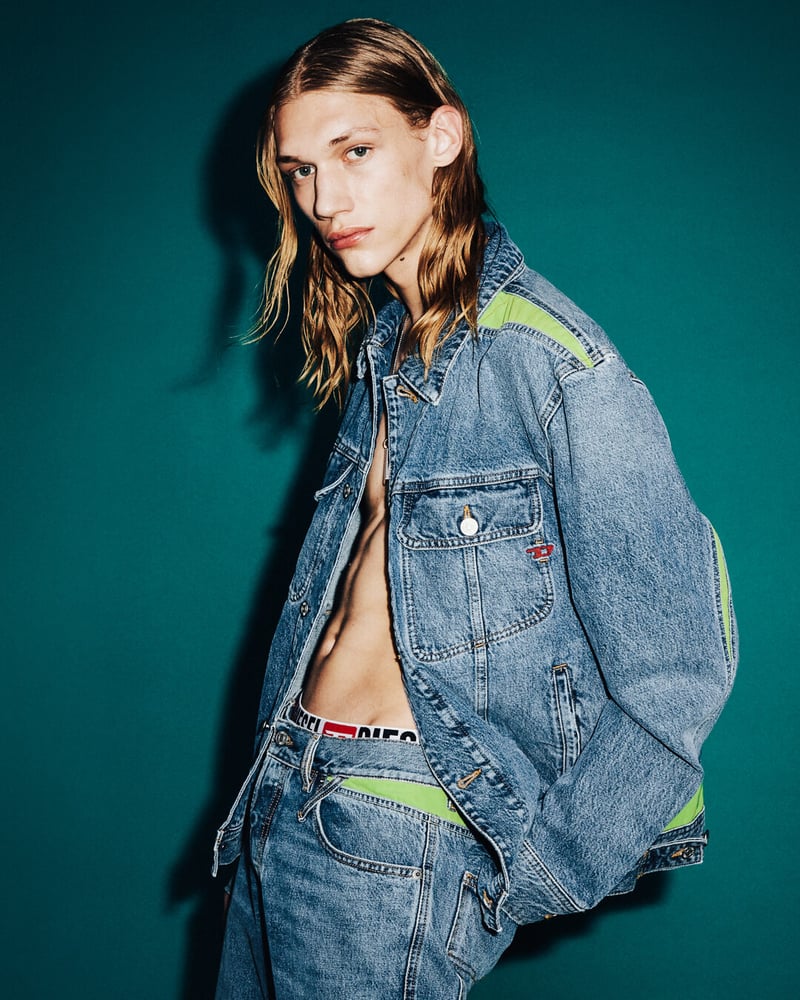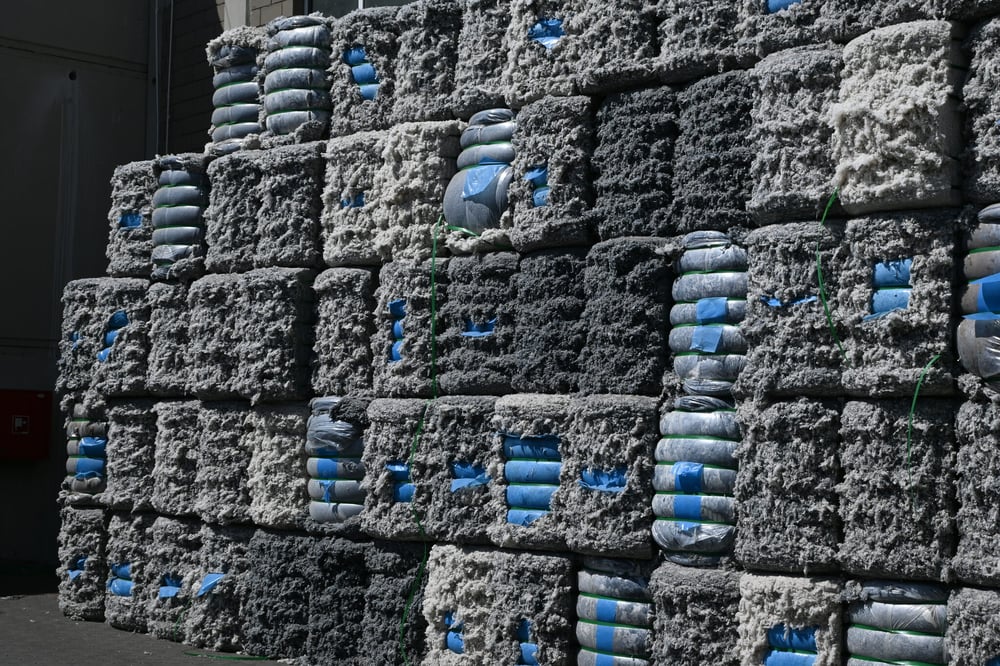Jun 12, 2023
Diesel’s Andrea Rosso on its low impact future
Jun 12, 2023
On Monday, the OTB group released its 2022 Sustainability Report, outlining its environmental efforts in a stable that includes its signature brand, Diesel, Jil Sander, Maison Margiela, Marni and Viktor & Rolf.

Among the highlights, last year, 52% of energy used in the Group's internal operations worldwide came from renewable sources, an increase of 11% from 2021.
OTB has also supported 65 suppliers in its supply chain through its special C.A.S.H. program, with payments totalling more than 450 million euro in 2022.
While the group’s OTB Foundation supported 350 social development projects, with a direct impact on the lives of over 350,000 people around the world. It also welcomed 440 refugees from Ukraine, and allocated over 550,000 euros for a project dedicated to women empowerment.
The company is committed to a new stage within its production process, where from 2023, 60% of all Diesel’s denim collections will feature lower impact materials and treatments. A big step for such a big denim brand.
In terms of sustainability, Diesel has been busy on many fronts. To cite one example, in Tunisia, it has collected 7,500 kg of textile cutting waste from Diesel's denim plants there, segregated them and sent them to recycling facilities. The brand is now set to market 28,000 pairs of denim jeans made using a minimum of 20% recycled fibers, derived from such cutting scraps.
So, we zoomed with Andrea Rosso, son of Diesel founder Renzo Rosso and the brand’s Sustainability Ambassador, to discover where Italy’s most famous jean maker is heading environmentally.
FashionNetwork.com: Diesel speaks a lot about lower-impact products, what exactly do you mean by that?
Andrea Ross: Every company should know the products it is making. At Diesel, our production is 81% cotton. Cotton needs water to grow and in the chemical process after - with washing, printing and dyeing. And then again in the mechanical effects of ageing. So that’s the center of our responsibility – focusing especially on cotton. Our core business is T-Shirts and denim. So, it’s about changing the way that cotton is cultivated and sent to consumers. By comparison, polyester is only 10% of our raw material and leather is just 0.25%.
FN: Where have you been finding fresh suppliers of organic, recycled cotton or regenerative cotton?
AR: Keep in mind how cotton is made. Everything from pattern making to production cycle needs to be controlled. In Tunisia, where we work a lot: we can control sustainability with suppliers. So, the challenge is to control suppliers in South Pacific and Asia. That’s why we have a code of conduct with every supplier. I was in Bangladesh last month and was impressed that our code of conduct was hung on the wall of factories – showing how they respect our regulations.
FN: Like any people you are incorporating Tencel, Lyocell, Modal and Refibra, often cellulose based, and less-demanding crops such as hemp. Once again, where are you sourcing all these materials?
AR: One needs to appreciate that the biggest distinction is between synthetic and artificial. Cellulose comes from wood pulp – the mechanical crashing of wood – first it becomes liquid, then yarn and then material. The result is shiny and light, a long yarn and filament. Today, cellulose makes up just 3% of our uses. But it helps us when it comes to cotton recycling. It reinforces material and gives smoothness.

FN: Many brands proclaim how much information they put on their QR codes of labels. What info is on a Diesel QR code now?
AR: I think of it this way. Imagine you go to the USA – you have the green line and the red line. The QR code is the green line. All the ingredients for making a product responsible. It’s a cotton declaration that you need to pass through customs. In three aspects – treatment; fabric and fiber; production. Though, we have not yet listed factories, but will soon.
FN: How much water does Diesel use in a year?
AR: All the journalists should ask this! To be honest, in terms of quantity it is very hard to say. We know making a pair of jeans can take thousands of liters of waters, but how much is very hard to calculate. We plan to estimate the amount of water used in making a garment –but it is very hard to know. And we really want to have the right numbers.
FN: You led the development of Diesel’s 55DSL. How is that going?
AR: I was creative director from 1996 to 2014 – an upcycling collection before sustainability became so discussed. We made 5,055 garments from dead stock and product sampling. No raw material, so zero water – but it was very costly to take apart garments we discovered.
FN: How does Diesel Second Hand work? What percentage of business can it be in the future?
AR: It is based in Italy, though distribution is throughout Europe. An amazing project and great for nostalgia, and for fans of Diesel – who can buy original pieces. It is a small but a good parenthesis. We are also now using our own scraps from our own wastes in the circular economy. All of our scraps go into containers, and get turned back into yarn. Our goal is to make 20% of our fabric from recycled cotton.
FN: Tell us about Diesel Rehab Denim?
AR: This line features Dry Indigo® Technology, which drastically reduces the amount of water, chemicals and energy required in the dying process. Invented by a great partner in Spain – Tejidos Royo. So, instead of eight or nine vats of water and dye to make blue jeans, with Dry Indigo it is just with one passage to penetrate into the fiber. It’s remarkable.
FN: You are very active in Tunisia, which produces 31,000 tons of textile waste each year. How is your project in Tunisia with Swift going?
AR: We collaborate with Swift our partner in Tunisia to mechanically regenerated our scraps. It’s a super tiny amount but that’s the most difficult part – convincing your partners to change. But when consumers are driven to buy the products you make, then we must insist with this test pilot.
Copyright © 2023 FashionNetwork.com All rights reserved.




